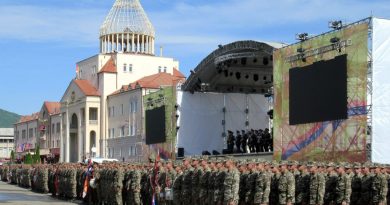Shaky First Day Follows Trump’s Inauguration
By Catrice Austin
Staff Writer
President Donald Trump’s inauguration bore a stark contrast to that of former President Barack Obama in 2009. A record-breaking 1.8 million people attended Obama’s first inauguration, whereas Trump drew a crowd only a third of that size. Moreover, CNN reported over 200 protesters were arrested during the inauguration on Friday morning.
Demonstrations continued the next day for the Women’s March on Washington. Across the United States and around the world, The Washington Post said over 670 planned events were recorded nationwide and in an additional 70 cities worldwide to advocate equality for women and against fascism, xenophobia, and racism.
Trump’s inauguration also stands out because for the first time in U.S. history, 49 Democratic lawmakers boycotted an inauguration, CNN reported. After a controversy over Russia’s alleged involvement in the 2016 election and Trump’s attack on civil rights icon John Lewis, U.S. officials came together to voice their disapproval for his presidency. Raul Grijalva, John Conyers, William Lacy Clay, Katherine Clark, Adriano Espaillat, and Marcia Fudge were among the congressmen who did not attend. As reported by The Washington Post, Representative Jerrold Nadler (D-NY) justified his decision by saying that he could not ethically attend the inauguration due to Trump’s failure to address his conflicts of interest, disclose his financial dealings, and separate himself from legal and ethical misconduct. Several congressmen gave public statements on why they did not attend the inauguration as well.
Although many around the world have openly expressed their criticism of Trump’s potential policies, some foreign officials are optimistic about working with Trump and his incoming administration. Stated in Business Insider, Prime Minister Benjamin Netanyahu of Israel was among those who congratulated him, calling Trump a true friend of Israel. Netanyahu also stated that he and Trump will work together to advance the security, stability, and peace, citing what he believes to be common values and interests shared by both the United States and Israel. United Nations Secretary-General Ban Ki-moon also said he looked forward working with the Trump administration to uphold shared ideals, combat climate change, and advance human rights.
Earlier in the week, Trump released an outline of his plan for the next four years in office. As reported by CNN, it included withdrawal from the Trans-Pacific Partnership (TTP). Trump hopes to replace the TTP with what he calls “fair bilateral trade deals” but did not offer further specifications. He also plans to reduce environmental restrictions by canceling restrictions on the production of American energy, including shale energy and clean coal. He also described plans to decrease regulation on businesses by getting rid of the Dodd-Frank, which authorized Wall Street banks to hold more cash on hand than in the past. Banks will also be required to comply with annual “stress tests” to guarantee their strength to withstand another financial crisis. Trump’s plans go on to include increased resilience against cyber attacks, enacting an investigation on visa programs to stop illegal immigration and the abuse of visa programs that he states, “undercut the American worker.”
If approved, anyone who illegally re-enters the US will be given a mandatory two-year minimum federal prison sentence, and a suggested five-year minimum sentence for those with prior felony convictions, multiple misdemeanors or two or more previous deportations. Trump also included a lobbying rule prohibiting officials from becoming a lobbyist for five years after leaving government. He believes this lobbying rule will “clean up the system” and put an end to corruption.

